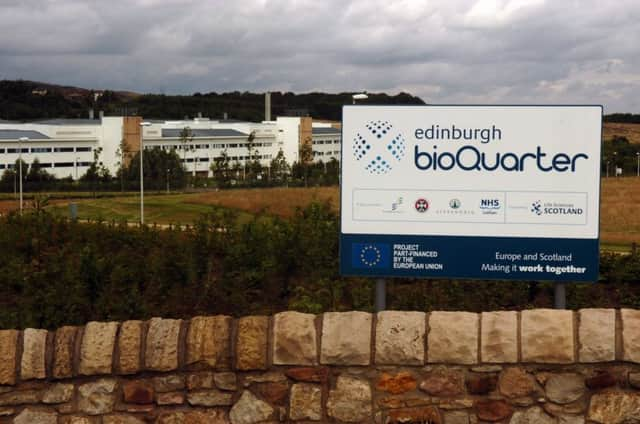Eilidh Mactier: Life sciences could be economic lifeline post-Brexit


Scotland is an ideal location for a strong global life sciences industry, ranking as a top three nation for research productivity and impact. The 19 Scottish universities and higher education institutions attract some of the best international talent within the science community. This includes the largest concentration of animal health and aquaculture researchers in Europe.
These factors are also having a significant economic impact on Scotland. Figures released by the Fraser of Allander Institute at the end of 2017 revealed the pharmaceutical sector is now worth £2.7 billion a year. It directly employs around 5,000 people in Scotland and indirectly supports around 16,500 jobs elsewhere within our economy.
Advertisement
Hide AdAdvertisement
Hide AdThese statistics provide real encouragement when you consider the strong opportunity that exists for Scotland to build on this base. Alison Culpan, director of the Association of the British Pharmaceutical Industry Scotland believes the industry can be a driving force behind long-term sustainable economic growth and can play a significant role in helping overcome some of the challenges that may arise elsewhere from the UK’s departure from the EU. She also points to the focus on the sector by the Scottish Government, which is working in collaboration with the wider life sciences community to maximise the economic opportunity while enhancing the health of the people who benefit from its innovation.
Other public sector bodies are also playing a key role in the nurturing and growth of Scotland’s life sciences industry. The Edinburgh BioQuarter, a health and science campus, is a prime example of this approach. It was created through a joint venture between Scottish Enterprise, University of Edinburgh and NHS Lothian to bring together young, growing, and established life science companies.
Along with the Scottish Government and other public bodies, the legal sector also has a key role to play in supporting life sciences companies to ensure they can flourish. To continue its progress and ensure it can operate in a flexible business environment, the sector is benefitting from astute legal support in a wide range of operational areas including advice on property-related issues. Not surprisingly, growth of the industry has led to increased property requirements from life sciences companies. We are advising an increasing number of clients in this area, including NuCana, a biopharmaceutical firm which is developing a number of new anti-cancer medicines. It recently transformed from private company status into a public company listing on Nasdaq in the US, a move indicative of its growing size and success. Not long after completing NuCana’s original letting in Edinburgh Park, it also required additional office space within the site.
The support of a strong legal team in property-related issues has an important part to play in helping the business development of companies and organisations within Scotland’s life sciences sector. These businesses need to be suitably advised so they have flexibility built into their lease arrangements, both in terms of being able to leave early and also in enabling them to grasp future expansion opportunities when they arise. There are a number of areas where sound legal counsel is essential including getting the right agreement in place on break rights, rights of first refusal for additional space, rights to extend a lease term and flexibility around future conversion of work spaces. This latter point needs to be considered by both landlord and tenants when negotiating and agreeing dilapidations obligations.
In addition to getting the details right over leases, there are other property matters requiring legal support. Some businesses in this sector may have specific requirements regarding storage of materials, including those which are flammable and hazardous. It is important that these are flagged early on and agreed with the landlords, striking a balance between the needs of life sciences occupants and the safety of others within the development.
We should be encouraged by Scotland’s thriving life sciences businesses, many of which are truly world-leading. With the right support, including the important input from legal advisers, the industry will continue its exceptional growth.
Eilidh Mactier is an associate at law firm CMS
Life Sciences in Scotland: Moving Forward Together – To 2025 and Beyond. A Scotsman Conferences event, 12 November 2018: www.scotsmanconferences.com